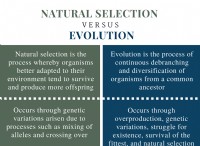Plants produce a variety of hormones, including auxins, cytokinins, gibberellins, abscisic acid, and ethylene. These hormones play vital roles in plant growth and development, but they can also have effects on humans and other animals.
For example, some plant hormones have been shown to have estrogenic or anti-estrogenic effects in humans. This means that they can bind to estrogen receptors in the body and either mimic or block the effects of estrogen. This can have a variety of effects, including:
* Altered menstrual cycles
* Increased risk of breast cancer
* Reduced fertility
* Increased growth of uterine fibroids
Other plant hormones have been shown to have effects on the gut microbiome. The gut microbiome is a community of trillions of bacteria, viruses, and other microorganisms that live in the human gut. These microorganisms play a vital role in human health, by helping to digest food, produce vitamins, and protect against infection.
Some plant hormones have been shown to alter the composition of the gut microbiome. This can have a variety of effects, including:
* Altered metabolism
*肥満のリスクの増加
* Reduced immunity
* Increased risk of developing certain diseases, such as Crohn's disease and ulcerative colitis
How humans and their gut microbes may respond to plant hormones
The effects of plant hormones on humans and their gut microbes are complex and still not fully understood. However, it is clear that these hormones can have a significant impact on human health. More research is needed to determine the exact mechanisms by which plant hormones affect humans and their gut microbes, and to develop strategies to mitigate any potential negative effects.
In the meantime, people who are concerned about the potential effects of plant hormones may wish to limit their intake of certain foods, such as soy products, which are known to contain high levels of plant hormones. They may also wish to talk to their doctor about ways to reduce their exposure to plant hormones.







